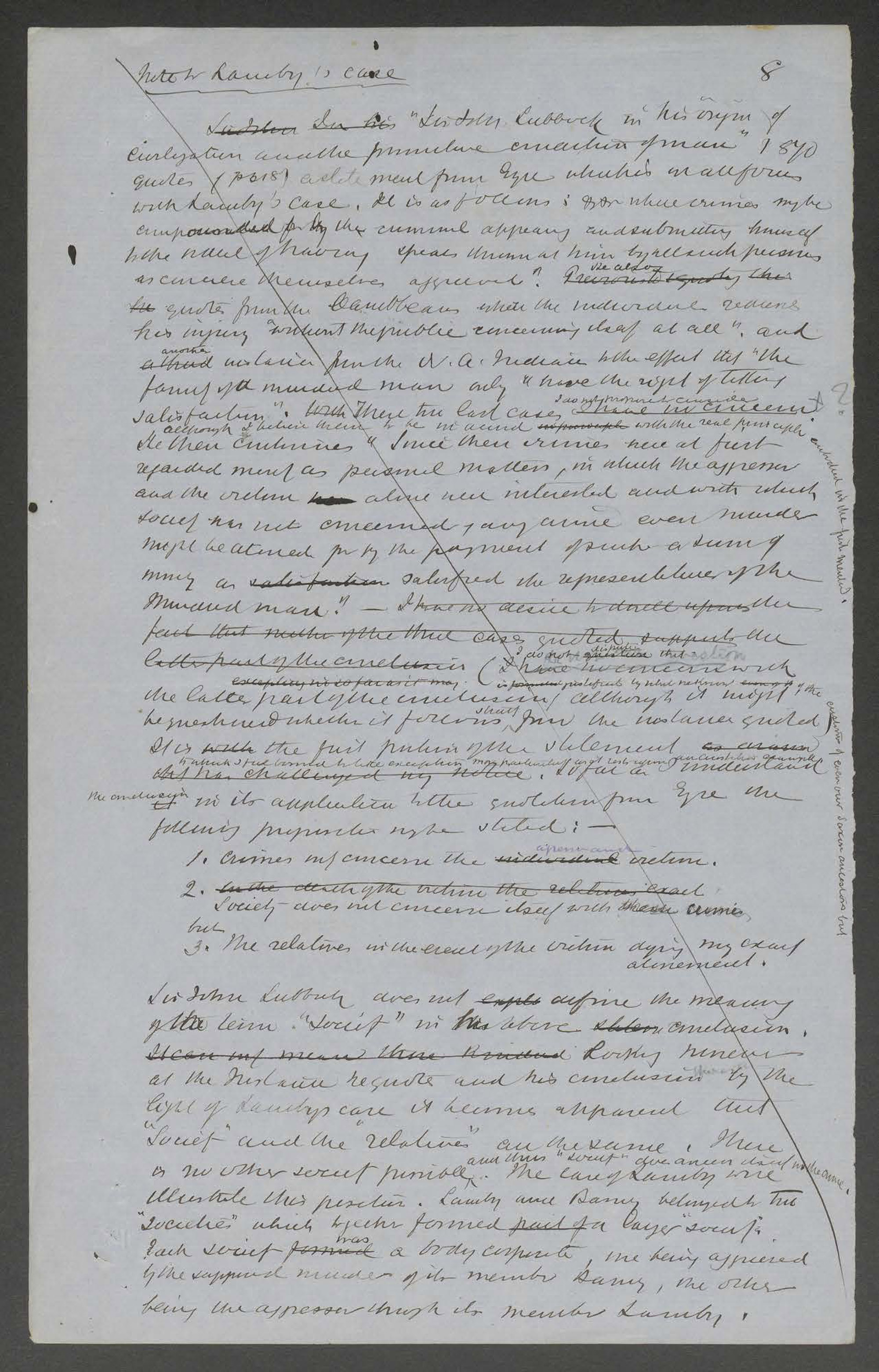Notes on Kurnai 150 pages

Transcription - Page 62
[pp. 329-330 Kamilaroi and Kurnai]
8
Note to Lamby's case
"Sir John Lubbock in his "Origin of
Civilization and the Primitive Condition of Man" 1870
quotes (p. 318) a statement from Eyre which is in all forms
wiht Lamby's case. It is as follows: +c +c where crimes may be
empowered the criminal appearing and submitting himself
to the ordeal of having spears thrown at him by all such persons
as conceive themselves aggrieved". He also
quotes from the Carribbeans where the individual redresses
his injury "without the public concerning itself at all". And
another instance from the N. A. Indians to the effect that "the
family of the murdered man only have the right of taking
satisfaction." These two last cases I do not propose to consider
although I believe them to be in accord with the real prinicples embedded in the first mentioned.
He then continues "Since then crimes were at first
regarded merely as personal matters, in which the aggressor
and the victim alone were interested and with which
society was not converned of any crime even murder
might be atoned for by the payment of such a sum of
money as satisfied the representatives of the
murdered man."
I do not dispute that is justified by what we know of the custom of even our [??] ancestors but
the latter part of the conclusion (although it might
be questioned whether it follows strictly from the instances quoted)
It is the first position of the statement
to which I feel bound to take exception most particularly as it rests upon an Australian example. So far as I understand
the conclusion in its application to the quotation from Eyre the
following properties may be stated:-
1. crimes only concern the aggressor and victim
2. Society does not concern itself with these crimes
but
3. The relatives in the event of the victim dying may exact
atonement
Sir John Lubbock does not define the meaning
of the term "society" in his above conclusion.
Looking however
at the instance he quotes and his conclusion by the
light of Lamby's case it becomes apparent that
"Society" and hte "relatives" are the same. There
is no other society possible and thus "society" does [??] itself with the crime. The case of Lamby will
illustrate this position. Lamby and Barney belonged to the
"societies" which together formed a larger "society"
Each society was a body corporate, one being aggrieved
by the supposed murder of its member Barney, the other
being the aggressor through its member Lamby.
Document Details
